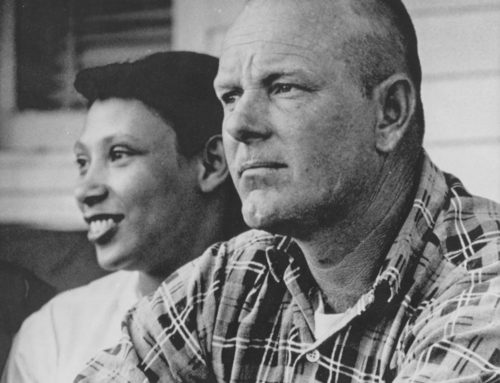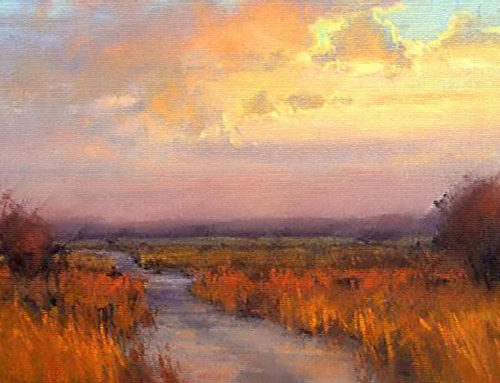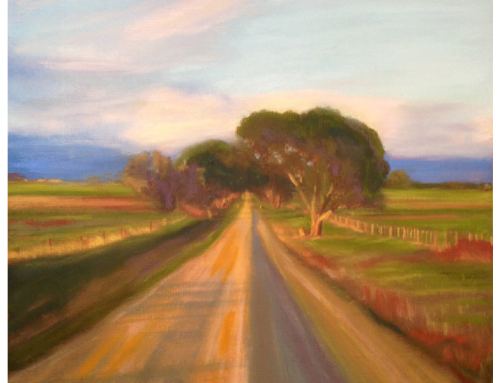The beeps are more irregular now. They aren’t there to cause anyone to run. There will be no colored code, no carts and no soft-soled shoes hurrying along the polished linoleum floor that paves the hallway just outside the door. The beeps emitted from the heart monitor are only there to provide corroboration to the statements of an emotionless nurse who will eventually aver, “there are no signs of life.”
The four Konnor kids have gathered here in the humble hospice room to await my father’s death. He has been here nearly five years since, blood pressure elevated by my mother’s screams and roars within his own car, he had a stroke that took from him the virility and eloquence I so closely identified with who he is. The man here in the bed, eyes closed, breathing shallow, body gnarled is hardly recognizable to me now. His gentle voice and counsel silenced these five years. Nurses and other staff from the facility occasionally drop into the room to pay their respects. News has spread that the man with the kind eyes and occasional words is in his final hours, although stubbornly clinging to life.
My father had survived two heart attacks and two triple-bypass surgeries. He survived over four years of service in World War II including many near misses like the incident chronicled in the book “The Spearheaders” in which his entire unit of 200 men was killed by a Nazi sabotage, except for two. Those two lay silent and still under the dead, bleeding bodies of their compatriots as the German soldiers passed back through the carnage spraying machine gun fire to ensure all were indeed destroyed. Although a devoutly religious man, a true believer in the after-life, he had a real fear and aversion of death. The youngest of five, he had seen his family die before him.
“To live is the rarest thing in the world. Most people exist, that is all.”
I question why I am here. Perhaps he could sense us there and not feel alone. Perhaps he’d awake for a tiny lucid interval in which I’ll have that chance to say I love you one last time. Perhaps I hope to hear him encourage me, something he did like breathing.
During my trip to India in 2000 we traveled by train at night between exotic cities, which we would tour by day. In the middle of the trip, the day after visiting the pink city, Jaipur, however, was an unusual stop. The Ranthambore National Park is the world’s largest open tiger preserve. It is situated in the Sawai Madhopur district of southeastern Rajasthan, 160 km southeast of Jaipur, Ranthambore was established as the Sawai Madhopur Game Sanctuary in 1955 by the Government of India and was declared one of the Project Tiger reserves in 1973. Ranthambore became a national park in 1980. At the center of the park is Ranthambore Fort built in the 10th century, it towers 700 feet above the surrounding plain. Inside the fort, there are three red Karauli stone temples devoted to Ganesh, Shiva and Ramlalaji. There is a Digamber Jain temple of Lord Sumatinath (5th Jain Tirthankar) and Lord Sambhavanath. The temples were constructed in the 12th and 13th centuries.
The park’s deciduous forests are characteristic examples of the type of jungle found in Central India but are now devoid of indigenous wildlife. It was created in an effort to restore India’s tiger population after many centuries of over-hunting and poaching. It was on these lands, in fact, that the wealthy Maharajas would hunt the majestic, predatory tiger. The 392 square kilometer sanctuary boasts hundreds of tigers, leopards, wild boars, and many other animals in a free-roaming environment. One Ranthambore tiger, Broken Tail, rose to fame when he was the subject of an eponymous documentary. He somehow left the park area and traveled from Ranthambore to Darra, where he was killed by a something he had never seen, an unknown danger – a train.
The timing of my trip to India was fortuitous. I had spent the preceding years coming to terms with a bitter divorce and struggling to understand myself and my place in the world as well as doing seemingly daily battle with the seemingly endless stream of bitter attacks from an even more bitter ex-wife. Her dishonesty and betrayal laid bare by the divorce, she turned not to contrition but rather to punishing me in any way she could conjure. Creating scenarios, turning me into the police, the FBI, her boyfriends, contriving lies and besmirching me at every turn, hiding our daughter from me – nothing was off limits, no act too low. Finding a psychological haven and learning to live a different life was difficult. Half way across the world, exposed to abject poverty, my problems began to shrink in perspective and I started to see the possibilities of peace and purpose.
“The very essence of romance is uncertainty”
We awoke early to find it unusually cold, so cold that the train attendants gave us every possible blanket to cover ourselves in the open-air jungle trucks that came to collect us at the train. We were told to stay in the trucks at all times. As we entered the preserve, the last bit of low-lying fog still languidly rested on the long, dew-speckled grass. A call of a foreign bird would intermittently interrupt the dead silent morning. It was cold enough to be uncomfortable.
Each truck held about nine of us and so we rode with the friends we made in the strangely luxurious bar and restaurant cars of the train that sped us past the unseemly poverty of rural India. Evenings on the train were filled with dressing in the Indian clothes we found that day and meeting in the bar car to cocktail into the wee hours.
One of these friends, Eric, was a professional photographer and was riding with us on the Palace on Wheels in support of a Japanese journalist who was writing about the train and its exotic and rarely visited destinations. Eric desperately wanted the perfect photo of a large tiger for his article. Our guides assured us that we would see what so few see – tigers in their natural habitat roaming freely on the ruddy Indian soil.
By 11:00 we had covered miles, slowly traversing the bumpy, dirt pathways of the preserve. We had seen and heard dozens of Kingfisher flutter from the dense, wooded canopy; we had seen a wild boar or two, but nary a tiger. We were all disappointed as our guides conferred outside the trucks.
We stopped to gas the truck at the top of a large gorge. I saw running water in the distance at the bottom of the gorge. The warm sun was now filtering between the leaves to create rays that ultimately lay strong and golden on the water as it glinted in the distance. I thought what better place to see a tiger than by a river or creek. I left the road and started walking several hundred yards down the ravine toward the water.
“It takes a great deal of courage to see the world in all its tainted glory, and still to love it.”
I had purchased special hiking shoes to take with me to India. They were sure-footed along the embankment as I found my way down toward the water. When I reached the quickly moving water I looked back. I shielded the sun from my eyes to see the silhouettes of some of our group standing just outside our trucks. As I turned to head down river I suddenly stopped. A thought rushed through my mind, a simple thought – “tigers eat people.” They tear flesh. They render limbs. What in the world was I thinking? In my pursuit to see a beautiful and majestic wild tiger, I had somehow forgotten something very, very basic. This was extremely dangerous. I hastily made my way back up the ravine to the jungle trucks where I was chastised in thick accent by our guide.
“One does not return from India unchanged.”
The beeps were more irregular now, it clearly won’t be long. I got up form my chair and placed my hand on my father’s head. His brow burned with fever. His hair was downy. His eyes which hadn’t opened in three days slowly opened and although he said nothing he looked at me with understanding. He fell out of focus as tears silently streamed from my eyes. “Don’t be afraid,” I said, “this is not goodbye.” A few minutes later the beeps turned abruptly to a strident alarm. His breathing stopped. Unplugging the machine did not stop the long, steady tone. Grief fell on me like a boat anchor from above. Despite all preparation, I had somehow overlooked something very basic. My body wracked with sorrow.
“To love oneself is the beginning of a lifelong romance.”
Leaving the truck was never difficult for me. The lesson that was more difficult to learn, one I had to be devoured a second time to understand, was to behold from afar. There are times to stay in the truck.
– all quotes Oscar Wilde.






